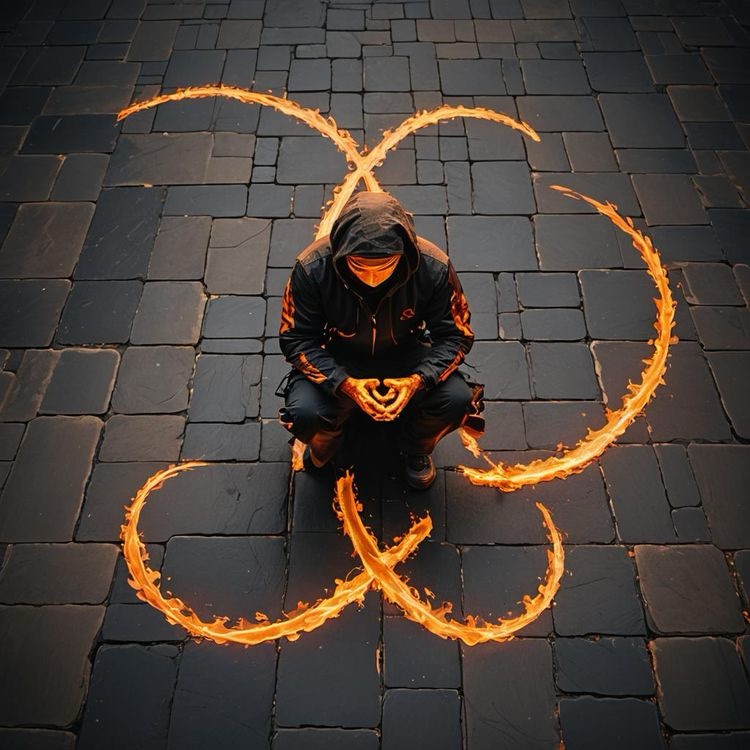There once was a boy, born into a place,
Where he didn’t quite fit, not a familiar face.
His mother sang songs, but their tones were grim,
Whispering softly, “You’re no one’s kin.”
Night after night, her voice like a spell,
Filled the boy’s mind with a tale hard to tell.
He wandered for years, feeling lost and alone,
Looking for love, or a place to call home.
The music they played, like magic so sly,
Chipped at his heart, made his spirit run dry.
His gifts and his dreams were buried so deep,
By a powerful order that lulled him to sleep.
For the ones who controlled, the Masons in line,
Wove a strange tale in his innocent mind.
But one day he woke, as strong as could be,
And saw through the lies, his soul set free.
He realized his life had all been a game,
An illusion, a story that filled him with shame.
But now he was fierce, with a fire in his chest,
A warrior awoken, a man on a quest.
He stood at the crossroads—war or peace?
To fight for revenge, or let it all cease?
But war would bring ruin, and peace felt too kind,
So he turned and walked on, left it all behind.
No longer bound by their rules or their schemes,
He cared not for the outcome, nor fitting their dreams.
For the first time, he asked, “What do I desire?”
And his soul was lit with a passionate fire.
He chose to do good, for the world wide and far,
Stretching his will like a bright, guiding star.
He joined with the Masters, ascended and bright,
To aid in their mission, with wisdom and light.
No longer a boy, but a man full of grace,
He walked his own path, found his own place.
Not seeking approval, nor driven by fear,
He lived for the world, for his purpose was clear.
